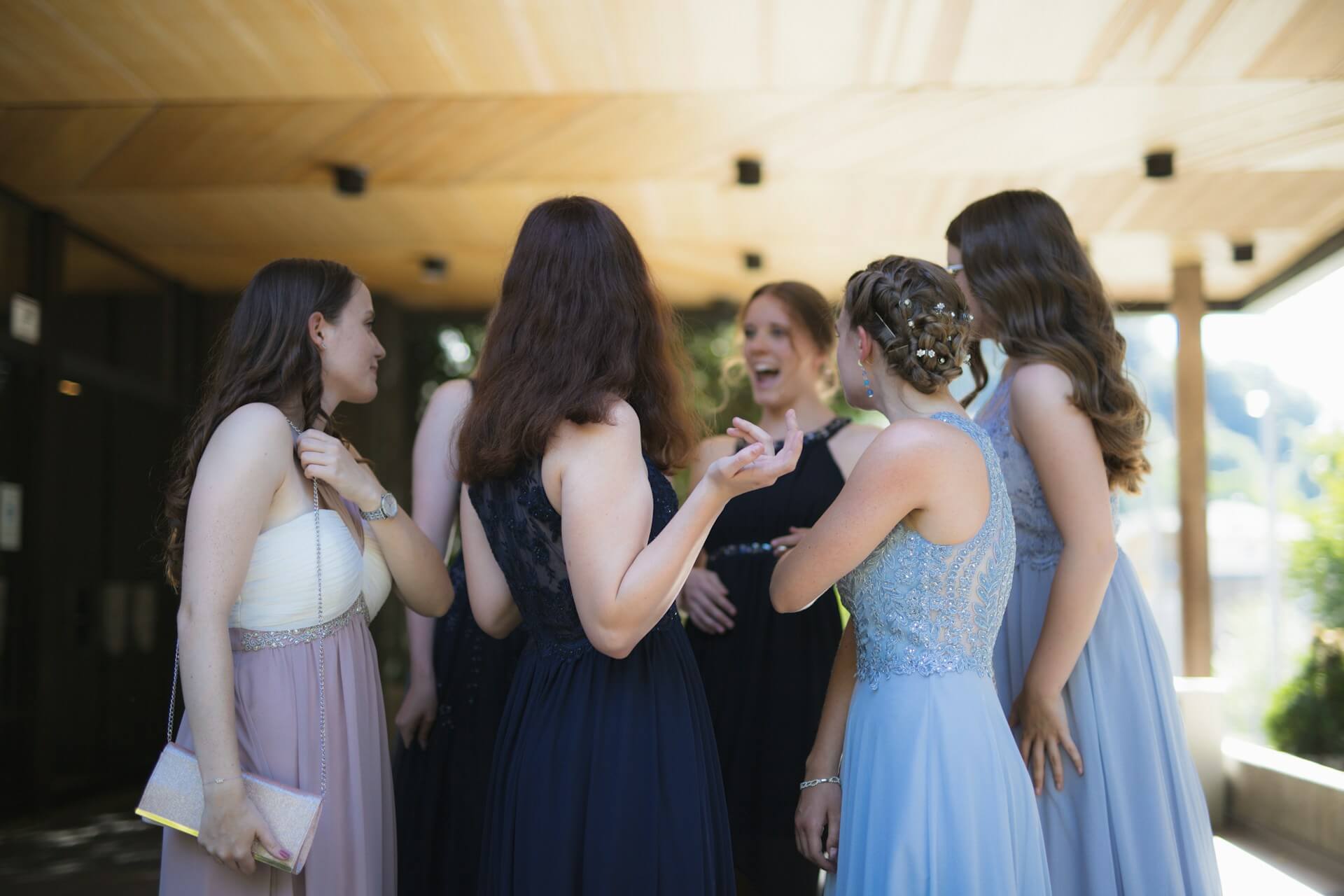
While there are many irregular verbs out there, haber is probably one of the most difficult ones to conjugate, to the point where even native speakers sometimes struggle with it.
There’s one good reason for it, and it’s because haber is actually an auxiliary verb - we’ll talk more about it later. Still, having the right resources will definitely make getting the hang of it easier.
That’s why we prepared this haber conjugation guide. Covering every conjugation of haber you will need when communicating, this comprehensive overview will help you master them.
When to Use Haber
Haber is sometimes wrongly interpreted as “to have” due to its similarity to the English verb. However, that is not the case. Haber can be used in a number of scenarios:
- To indicate existence. This is probably the most common situation in which haber is used. The object you want to talk about can be but doesn’t have to be physical.
- Hay una cama en el cuarto. - There’s a bed in the room.
- Hay química entre Rosa y Julio. - There’s chemistry between Rosa and Julio.
- To indicate a lack of existence. Haber can also be used in the opposite way, to indicate that something is not present - and just like before, it can be used in case of a physical or non-physical thing.
- No hay ajo en la cocina. - There’s no garlic in the kitchen.
- No hay dudas. - There’s no doubt.
- To say that something needs to be done. When used in combination with “que”, haber can be used to express that something needs to or has to be done.
- Hay que tener cuidado cuando eres en Barcelona porque hay muchos carteristas. - You need to be careful in Barcelona as there are many pickpockets.
However, as mentioned, haber has one more function, and that is as an auxiliary, or as some call it, helping verb. While it does translate to “have” in this context, it should not be mistaken for the verb “to have” indicating possession. It might sound confusing, but it will get clearer once we show you some examples:
- He comprado una computadora. - I have bought a computer.
- ¿Has estudiado para el examen de mañana? - Have you studied for the exam tomorrow?
- Han salido ya. - They have already left.
It should be clearer now what we meant, shouldn’t it?
Indicative Tenses of Haber with Examples
Indicative tenses are used when talking about something that is a fact or a characteristic. You can also use them when talking about a routine or a habit.
Haber Indicative in Simple Tenses
Here is a haber conjugation chart for all simple tenses of the indicative mood.
Pronoun | Present (have) | Preterite (had) | Imperfect (used to have) | Future (will have) | Conditional (would have) |
yo | he | hube | había | habré | habría |
tú | has | hubiste | habías | habrás | habrías |
él/ella/usted | ha | hubo | había | habrá | habría |
nosotros/nosotras | hemos | hubimos | habíamos | habremos | habríamos |
vosotros/vosotras | habéis | hubisteis | habíais | habréis | habríais |
ellos/ellas/ustedes | han | hubieron | habían | habrán | habrían |
Haber Indicative Present
The Present Indicative tense is used to talk about situations that are happening now or will happen in the near future, as well as facts and general truths.
PRONOUN | SPANISH | ENGLISH |
yo | he | I have |
tú | has | You have |
él/ella/usted | ha | He / She has, You have (formal) |
nosotros/nosotras | hemos | We have |
vosotros/vosotras | habéis | You have (plural) |
ellos/ellas/ustedes | han | They have / You have (plural formal) |
Additionally, there’s the “hay” form, also called “the existential form,” which is only present in the third person singular and means “there is / there are”.
Examples:
- Yo he comido. - I have eaten.
- Hemos viajado para esta boda desde España. - We have traveled for this wedding from Spain.
- Hay muchos estudiantes en la clase. - There are many students in the class.

Haber Preterite Conjugation
The Preterire tense is used when talking about actions that happened in the past, but at the time of speaking are completed. This could refer, for example, to actions that were a singular event or those that happened a specific number of times. Very often those actions also refer to a specific time during which they happened.
PRONOUN | SPANISH | ENGLISH |
yo | hube | I had |
tú | hubiste | You had |
él/ella/usted | hubo | He / She had, You had (formal) |
nosotros/nosotras | hubimos | We had |
vosotros/vosotras | hubisteis | You had (plural) |
ellos/ellas/ustedes | hubieron | They had / You had (plural formal) |
Examples:
- Yo hube terminado mi tarea a las diez. - I had finished my homework by ten o’clock.
- Nosotros hubimos comido antes de ir al cine. - We had eaten before going to the movies.
- Ellos hubieron visto la película antes. - They had seen the movie before.
Haber Imperfect Conjugation
The Imperfect tense is used when mentioning an action that was part of a routine or a habit in the past, but it’s no longer. It can be compared to the English “I used to…” Very often, this is used to talk about things that you did regularly during childhood but no longer do.
PRONOUN | SPANISH | ENGLISH |
yo | había | I used to have |
tú | habías | You used to have |
él/ella/usted | había | He / She used to have, You used to have (formal) |
nosotros/nosotras | habíamos | We used to have |
vosotros/vosotras | habíais | You used to have (plural) |
ellos/ellas/ustedes | habían | They used to have / You used to have (plural formal) |
Examples:
- Había pensado en ir al cine, pero luego cambié de idea. - I had thought about going to the movies, but then I changed my mind.
- Ya habíamos visitado antes esa ciudad. - We had visited that city before.
- Habían preparado una cena deliciosa. - They had cooked a delicious meal.
Haber Future Conjugation
The Future Indicative tense is typically used when referring to an action or an event that will take place in the future, but there’s no specified time when.
PRONOUN | SPANISH | ENGLISH |
yo | habré | I will have |
tú | habrás | You will have |
él/ella/usted | habrá | He / She will have, You will have (formal) |
nosotros/nosotras | habremos | We will have |
vosotros/vosotras | habréis | You will have (plural) |
ellos/ellas/ustedes | habrán | They will have / You will have (plural formal) |
Examples:
- Para 2030 habré terminado mis estudios universitarios. - By 2030 I will have finished my university studies.
- Habrán resuelto el problema. - They will have solved the problem.
- Si te esfuerzas más, habrás aprendido español con fluidez. - If you put more work in, you will have learned Spanish fluently.

Haber Conditional Conjugation
The Conditional tense is used when talking about hypothetical situations and scenarios that would happen provided certain conditions are met.
PRONOUN | SPANISH | ENGLISH |
yo | habría | I would have |
tú | habrías | You would have |
él/ella/usted | habría | He / She would have, You would have (formal) |
nosotros/nosotras | habríamos | We would have |
vosotros/vosotras | habríais | You would have (plural) |
ellos/ellas/ustedes | habrían | They would have / You would have (plural formal) |
Examples:
- No habrían venido si no les hubieras invitado. - They wouldn’t have come if you hadn’t invited them.
- Si hubieras estudiado más, habrías sacado mejor nota. - If you had studied more, you would have gotten a better grade.
- No habría creído esa historia si no la hubiera visto con mis propios ojos. - I wouldn’t have believed that story if I hadn’t seen it with my own eyes.
Haber Indicative in Compound Tenses
The verb haber is not used in these tenses, as it’s an auxiliary verb used to form compound conjugations. The conjugation here is just for reference. |
Pronoun | Present Perfect (have have) | Past Perfect (had have) | Future Perfect (will have have) | Conditional Perfect (would have have) |
yo | he habido | había habido | habré habido | habría habido |
tú | has habido | habías habido | habrás habido | habrías habido |
él/ella/usted | ha habido | había habido | habrá habido | habría habido |
nosotros/nosotras | hemos habido | habíamos habido | habremos habido | habríamos habido |
vosotros/vosotras | habéis habido | habíais habido | habréis habido | habríais habido |
ellos/ellas/ustedes | han habido | habían habido | habrán habido | habrían habido |
Subjunctive Tenses of Haber with Examples
The subjunctive tenses are the opposite of indicative tenses. While the indicative ones talk about things that are either true or realistic, the subjunctive mood talks about your hopes, dreams and desires. These tenses are also used when you aren’t sure or are doubting something.
Haber Subjunctive Conjugation in Simple Tenses
Pronoun | Present | Imperfect | Future |
yo | haya | hubiera | hubiere |
tú | hayas | hubieras | hubieres |
él/ella/usted | haya | hubiera | hubiere |
nosotros/nosotras | hayamos | hubiéramos | hubiéremos |
vosotros/vosotras | hayáis | hubierais | hubiereis |
ellos/ellas/ustedes | hayan | hubieran | hubieren |
Haber Subjunctive Present Conjugation
The Present Subjunctive tense is used when talking about something that you don’t have accurate information about or when you want to express your wishes or doubts about something.
PRONOUN | SPANISH | ENGLISH |
yo | haya | I have |
tú | hayas | You have |
él/ella/usted | haya | He / She has, You have (formal) |
nosotros/nosotras | hayamos | We have |
vosotros/vosotras | hayáis | You have (plural) |
ellos/ellas/ustedes | hayan | They have / You have (plural formal) |
Examples:
- Dudo que haya suficiente comida para todos. - I doubt there’s enough food for everyone.
- Es necesario que haya un médico en el avión.. - It’s necessary that there be a doctor on the plane.
- Me sorprende que no haya llovido en semanas. - I am surprised it hasn’t rained in weeks.

Haber Subjunctive Imperfect Conjugation
The Imperfect Subjunctive tense is used when you want to talk about an unlikely event from the past.
PRONOUN | SPANISH | ENGLISH |
yo | hubiera | I had |
tú | hubieras | You had |
él/ella/usted | hubiera | He / She had, You had (formal) |
nosotros/nosotras | hubiéramos | We had |
vosotros/vosotras | hubierais | You had (plural) |
ellos/ellas/ustedes | hubieran | They had / You had (plural formal) |
Examples:
- Tal vez no hubiera tantos problemas si hubiéramos comunicado mejor. - Maybe there wouldn’t have been so many problems if we had communicated better.
- Sentía que ellos no hubieran entendido las instrucciones. - I felt that they had not understood the instructions.
Haber Subjunctive Future Conjugation
As mentioned, haber is an auxiliary verb, so its use in Future Subjunctive conjugation is actually a bit more complex - it is used to form the “subjunctive future perfect” tense.
A good example of that would be “hubiere escrito la carta”, which could be translated to “I will have written the letter’”.
Additionally, Future Subjunctive tense is actually one that is not commonly used in modern Spanish. You will most often encounter it in literature, official documents, or in set phrases.
PRONOUN | SPANISH | ENGLISH |
yo | hubiere | I will have |
tú | hubieres | You will have |
él/ella/usted | hubiere | He / She will have, You will have (formal) |
nosotros/nosotras | hubiéremos | We will have |
vosotros/vosotras | hubiereis | You will have (plural) |
ellos/ellas/ustedes | hubieren | They will have / You will have (plural formal) |
Subjunctive Tenses in Compound Tenses
The verb haber is not used in this tense, as it’s an auxiliary verb used to form compound conjugations. The conjugation here is just for reference. |
Pronoun | Present Perfect | Past Perfect | Future Perfect |
yo | haya habido | hubiera habido | hubiere habido |
tú | hayas habido | hubieras habido | hubieres habido |
él/ella/usted | haya habido | hubiera habido | hubiere habido |
nosotros/nosotras | hayamos habido | hubiéramos habido | hubiéremos habido |
vosotros/vosotras | hayáis habido | hubierais habido | hubiereis habido |
ellos/ellas/ustedes | hayan habido | hubieran habido | hubieren habido |
Imperative Conjunctions of Haber
The verb haber is not used in this tense, as it’s an auxiliary verb used to form compound conjugations. The conjugation here is just for reference. |
Pronoun | Affirmative | Negative |
tú | habe | no hayas |
nosotros | hayamos | no hayamos |
ustedes | hayan | no hayan |
Avoid Confusion in Spoken Spanish with Haber versus A Ver
In spoken Spanish be careful to pay attention when you hear A Ver. The term “a ver” means let’s see and is a filler word often used in daily conversation. The confusion comes because A Ver sounds the exact same as Haber. Even native speakers can mix up the two when they hear them and then write them out.
As an extra tip, A Ver is going to be spoken more often than Haber, so if you hear either and aren’t sure which one to write, first, think of the context. If you still don’t know which to write, then A Ver is a good guess since it is more common.
Learn Spanish Effortlessly with Speaking Latino
Whether you’re a teacher looking for resources for their students or someone who wants to learn Spanish on their own, having the right resources can make a world of difference between learning feeling like a chore that you just have to do and it being something that you’re looking forward to. However, Speaking Latino is here to help you!
At Speaking Latino, we offer a number of teaching aids for learners of all levels. We also have cultural resources for those who might want to learn more than just grammar - after all, the language is just one thing. Spanish and Spanish-speaking countries have so much more to offer.